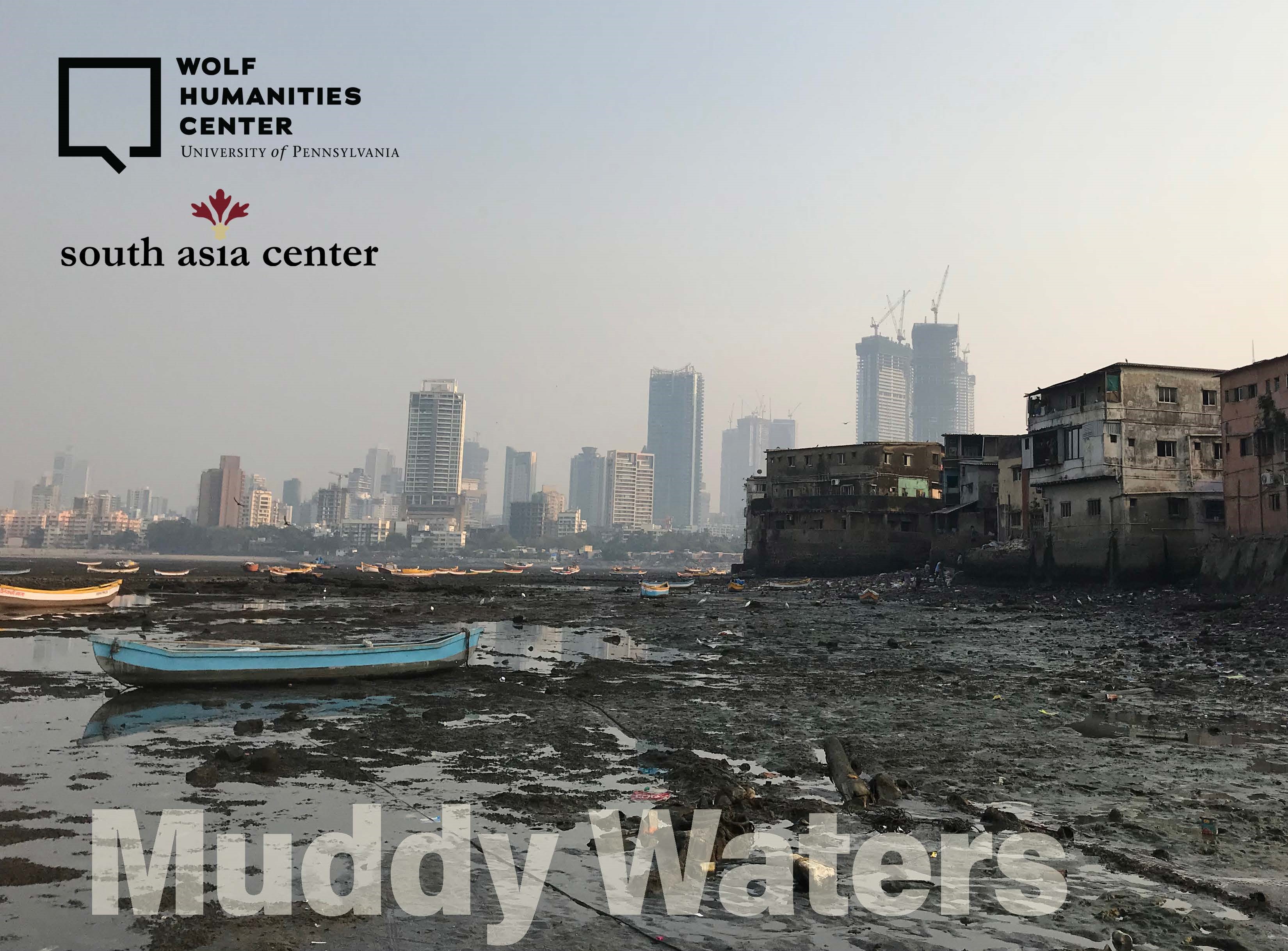Muddy Waters: Reimagining Futures in Wet Asia
Panelists in this session think about the kinds of futures and histories that might be made thinking in and from the waterscapes in which they have long worked.

Presented in collaboration with Penn’s South Asia Center
Today, anthropogenic climate change — cyclones, floods, and storm surges permeate and punctuate the regularity of everyday life in much of South and Southeast Asia. The catastrophic harms that are visited by these events are neither linear nor are they evenly distributed, but are a result of historic projects to manage, tame and regulate waters with the land-centric imaginaries of colonial and postcolonial states. Rather than approach questions of design and history with dry ground at the center, the panelists in this session think about the kinds of futures and histories that might be made thinking in and from the waterscapes (oceans, rivers and littoral regions) in which they have long worked.
Cosponsored by Penn's EnviroLab, Environmental Innovations Initiative, and Program in Environmental Humanities.
Class of 1978 Orrery Pavilion, 6th floor
Kislak Center for Special Collections, Rare Books, and Manuscripts
Van Pelt Library, 3420 Walnut Street
Nikhil Anand is the Daniel Braun Silvers and Robert Peter Silvers Family Presidential Professor of Anthropology at the University of Pennsylvania. His research focuses on the political ecology of cities, read through the different lives of water. His award-winning first book, Hydraulic City: Water and the Infrastructures of Politics in Mumbai (Duke University Press 2017), examines the everyday ways in which cities and citizens are made through the everyday management of water infrastructure. Articles based on this research have also been published in Antipode, City and Society, Cultural Anthropology, Ethnography and Public Culture.
His new book project, Urban Seas, is supported by grants from the National Science Foundation, the Wenner-Gren Foundation, and the Penn Global Inquiries Fellowship. Based on field research with fishers, scientists and planners as they work in the sea, the book decenters the grounds of urban planning by drawing attention to the ways in which climate-changed seas are remaking coastal cities today. Essays from this project have been recently been published in the International Journal of Urban and Regional Research (2022) and Environment and Planning (2023).
Prasenjit Duara holds the Oscar Tang Distinguished Chair of East Asian Studies at Duke University. He received his PhD in Chinese history from Harvard University. He was Professor and chair of History at the University of Chicago (1991-2008) and Raffles Professor and Director of Asia Research Institute at the National University of Singapore (2008-2015). His last book was The Crisis of Global Modernity: Asian Traditions and a Sustainable Future (Cambridge 2015). He was awarded the doctor philosophiae honoris causa from the University of Oslo in 2017 and was elected President of the American Association for Asian Studies (2019-2020). He is in the process of editing a volume on history and society in the hydrosphere.
Maira Hayat is an Assistant Professor at the University of Notre Dame. In 2022 she was a Member of the Institute for Advanced Study at Princeton. Hayat conducts research at the intersection of bureaucracy, environment and law, drawing on ethnographic and archival methods. Her current book project, Duties of Water: Bureaucratic Labor and the Postcolonial Promise, builds on her doctoral dissertation which won the 2019 S. S. Pirzada Annual Dissertation Prize. Her dissertation chapter, "The Gender of Corruption,"won the 2018 Sylvia Forman Prize for Best Graduate Paper by the Association for Feminist Anthropology. Her writing has been published in Antipode, Political Geography, the Anthropology of Work Review, and Critique of Anthropology. For a full list of publications you can consult her website: https://mairahayat.com/
Marvi Mazhar is an architect and researcher whose practice combines visual culture, spatial advocacy, and interventions. She serves on several advisory boards in government and non-profit organizations. Recently she completed her Master’s at Goldsmiths, University of London (2021) and in 2022 started teaching at the Indus Valley School of Art & architecture (IVSAA) in the M.Phil. Program, Pedagogies of Place. Her present ongoing research focuses upon the representation and production of Karachis urbans and rural coastal periphery and its ecology. She recently coedited book ‘Architecture for the Future’ (2023, MIT Publication) with Elke Krasny and Angelika Fritz. Mazhar is currently working in Kyrgyzstan on thirteen heritage sites as lead architect focusing on developing infrastructural and management connectivity.